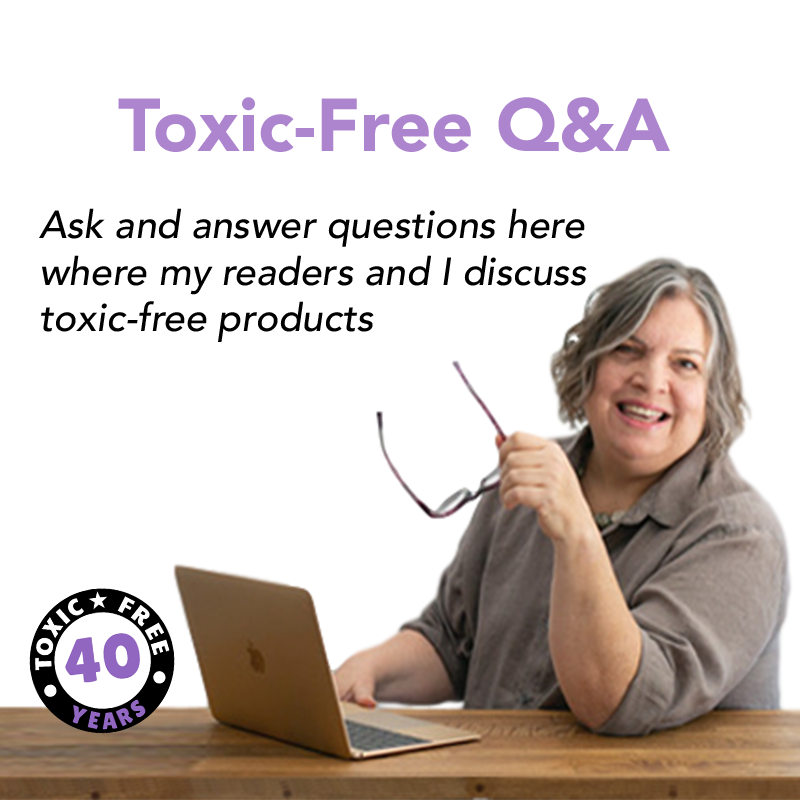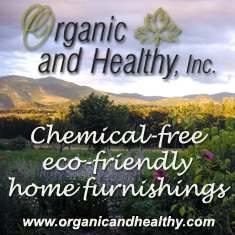
Submitted questions will be posted with my response by the following Tuesday or before.
Submitted comments will be moderated and approved within 24 hours.
Ecodent Dental Products
Question from sarah
Hi Debra,
What is your opinion of EcoDent toothpaste? Is this a natural product and good for health – no additives, etc.?
Thanks!
Sarah
Debra’s Answer
First of all, Ecodent does not make toothpaste, they make tooth powders. I have used them and really like them–in fact I probably will be buying more very soon since I have been trying out some other tooth powders I didn’t like.
I actually prefer tooth powders over toothpaste. Ecodent toothpowders contain minerals and herbs, no sweeteners or sodium lauryl sulfate.
All Ecodent dental care products are fine with me.
Sweet Leaf Stevia Safety
Question from CA
Hi Debra and all, I know you have only been recommending the whole leaf stevia, but I saw Sweet Leaf brand which seemed the most natural of the commercial brands. The type I saw only contained stevia (or stevia extract) and inulin fiber. What do you think of this in terms of health safety? Is it close enough to a whole food? Thanks for your help.
Debra’s Answer
If it’s a white powder (I’ve never seen it), it’s just as refined as white cane sugar, not a whole food.
Whole leaf stevia is easy to brew, like making tea. You can’t use it cup-for-cup as a replacement for white sugar, but you can add it for sweetness to things like smoothies and salad dressings, or soak fruit in it, and especially make iced herbal tea. I have it growing in my garden and I just pull leaves of mint and stevia and make tea for a very refreshing beverage.
Shampoo
Question from Srini
I am trying to find a good shampoo which is totally natural.
Some people recommended Aubrey but that product does not produce lather at all and my hair was stripping due to the friction.
Any suggestions would be welcome.
Debra’s Answer
Readers?
Repairing Loose Kitchen Tiles
Question from Lauri
Hi,
The edges of a few of the tiles on my kitchen floor have loosened, and are sticking up. I have tripped over them one too many times, and am afraid of getting seriously injured. The tiles, themselves, do not appear to be loose, just whatever is keeping them attached at their edges to the floor. Are there any products that are odorless and chemical-free that anyone can suggest to stick the edges back down? I am extremely sensitive to the odor from adhesive or caulk, and just don’t know what to use. Thank you, all, and a big thank you to Debra, for this wonderful newsletter.
Debra’s Answer
Just use regular white or yellow woodworking glue such as Elmer’s.
Looking For Laundry Stain Remover That Works
Question from Debbie
I have MCS and really bad scent sensitivities. I am looking for a laundry stain remover without smells, without petrochemicals and that actually works. Do you know of any?
Debra’s Answer
Readers?
Sealing in toxic cabinets
Question from Debbie
Hello,
I have not made my house green and am finding this website to be a valuable tool.
We just bought new kitchen cabinets which was a mistake. We are going to put them in a heated garage for at least 6 months before we install. Anyone recommend something to lock the VOC’s in. They are all wood cabinets but the stains and glues probably are not low VOC. Any help would be greatly, greatly appreciated!
Thanks,
Debbie
Debra’s Answer
If you are airing the cabinets in a heated garage for at least 6 months, you probably will not need to seal them.
Formaldehyde and polyester
Question from Abby Sernoff
Hi I recently found out I am allergic to formaldehyde. I am trying my best to eliminate it from my environment, which is proving quite challenging!
I am aware that it is highly present in permanent press fabrics and poly/cotton blends, but I have read varying things about the presence of formaldehyde in 100% polyester.
Any help would be appreciated. Thanks 🙂
Debra’s Answer
I don’t know about formaldehyde used on polyester. It’s not the kind of thing I would research because I have no interest in polyester fabric, entirely made from petrochemicals.
If you wanted to find out, I suggest researching the manufacture of polyester fabric, online or in the library. There are books and journals about textile manufacture–even an encyclopedia may be helpful.
Scanpan cookware
Question from Hi Debra,
Have you ever heard of Scanpan cookware? Its made in Denmark, and their products are made of a creamic-titanium compound. Their website is www.scanpan.com. I was considering purchasing one of their large pots which is on sale at a local store, but I wanted to get your opinion on the safety of this product.
Thanks so much for all you do. I love your website!
Laurel
Debra’s Answer
OK. Here’s the deal on Scanpan.
First, there seem to be several types of cookware made by this company. The one I think you are asking about–the one with the ceramic-titanium finish–is their Classic New Tek.
At www.scanpancookware.com/pages/scanpan-background-pv-c0-6.html it says the following:
“Both ceramic and titanium are incredibly hard materials. After having pressure-cast the raw pan body, the ceramic-titanium compound is super-heated to 36,000º F (thirty six thousand degrees!) at which point it liquefies. The ceramic-titanium enters a “plasma state”. That liquid plasma is then fired into the pan surface at twice the speed of sound. Lots of heat and impact. The ceramic-titanium literally anchors itself in the aluminum surface and becomes one with the pan.” So far, so good.
“When looking at SCANPAN CLASSIC NEW TEK under a microscope, we see something like a lunar landscape. A myriad of mini-craters, all similar in size and shape. These craters were created when firing the ceramic-titanium compound into the cooking surface, and are then filled with our specially formulated NEW TEK non-stick compound. The compound is in the craters, not on them. The ceramic-titanium protects it from being scraped away. Even if you use a metal spatula.” This is the part I am concerned about. They say their nonstick coating is PFOA-free, but that’s all we know about it.
The selling feature of the Scanpan is that you can’t scrape away the nonstick finish, but the nonstick finish is still there.
Replacing Fiberglass insulation in an unfinished attic
Question from Gigi
Dear Debra,
I have read your recommended safe solutions for insulation in “Home Safe Home”. I have also searched the Q&A section.
However, it is not clear to me if the advice givens covers unfinished attics.
We currently have blown fiberglass insulation on the floor of the attic. It has been there at least 20 years.
On the wall adjoining of the attic that adjoins a room, there is fiberglass batting with a layer of plastic over it. There is no drywall covering the fiberglass on that wall.
There is no insulation on the sloping roof portion of the attic.
Debra’s Answer
I’m not an expert on installing insulation, but I know some of my readers are.
So, readers, what are your recommendations?
Shower Curtain
Question from Mary
My old nylon, I think, shower curtain has a trace of mildew on it. It is at least ten years old. It is time to replace it.
I live in an apartment and do not have a clothes line to air it on. I don’t want to have to launder it frequently. I do have a bathroom window and I do mop up the shower after every use.
Are there natural fiber shower curtains that would remain mold-free for an extended period of time?
Are there nylon shower curtains available without Teflon coating? Do you or your readers know where to find one?
If a polyester shower curtain doesn’t say it is Teflon coated, can I presume it isn’t?
As always, thank you for this wonderful website!
Debra’s Answer
I don’t know of a natural fiber shower curtain that wouldn’t have mildew problems.
And having not shopped for nylon or polyester curtains, don’t know about the finishes you mention.
Readers, any suggestions? In this case, seems like a nylon curtain would be the better choice, as nylon is one of the least toxic plastics.
Ordinarily I would recommend putting in glass doors, but this reader can’t do that in a rented apartment.







